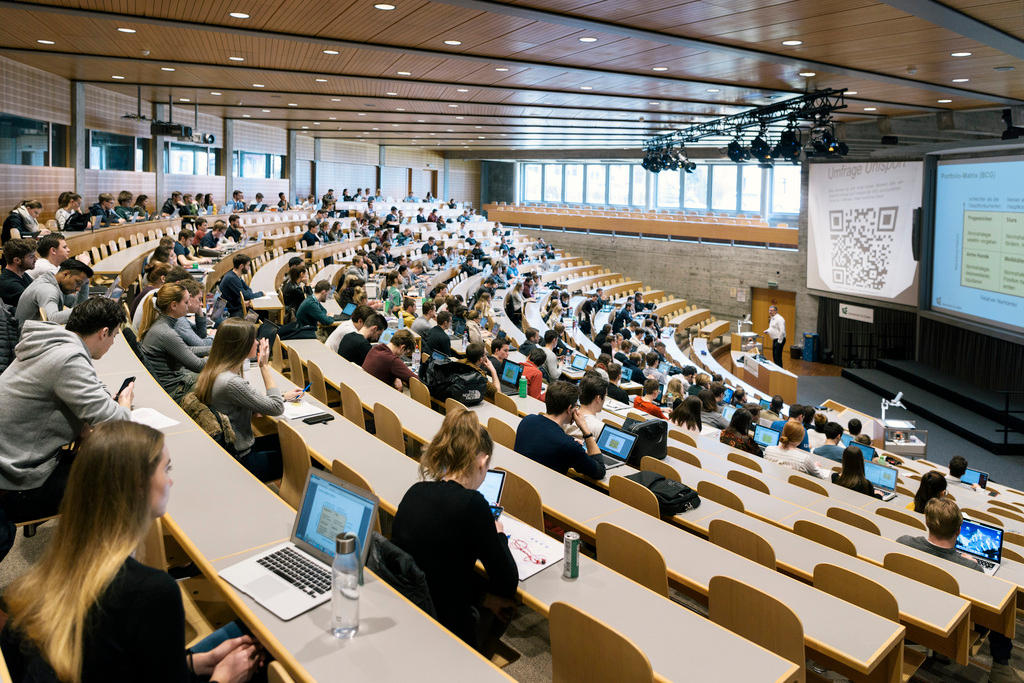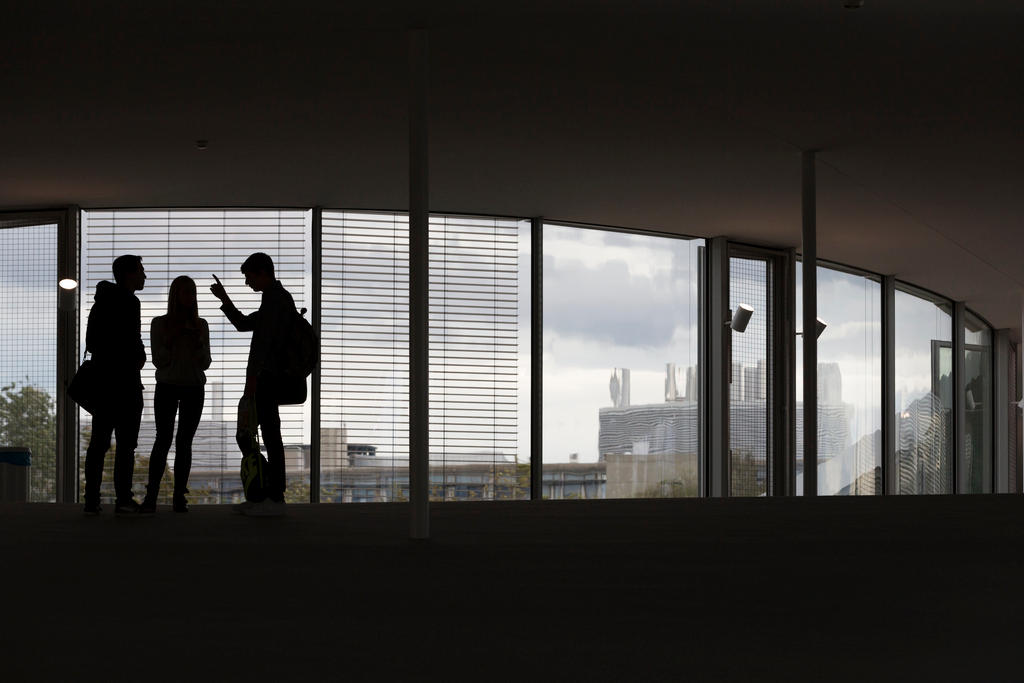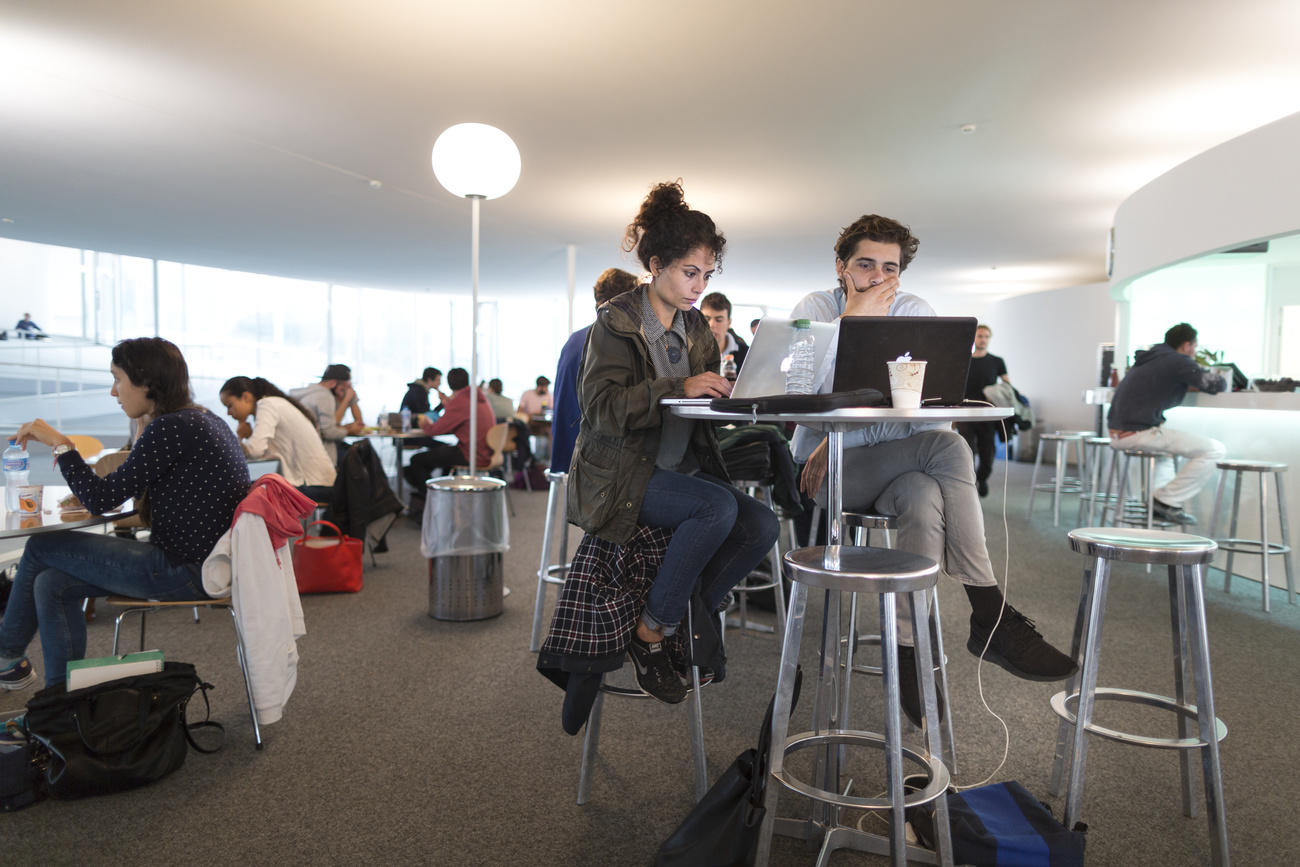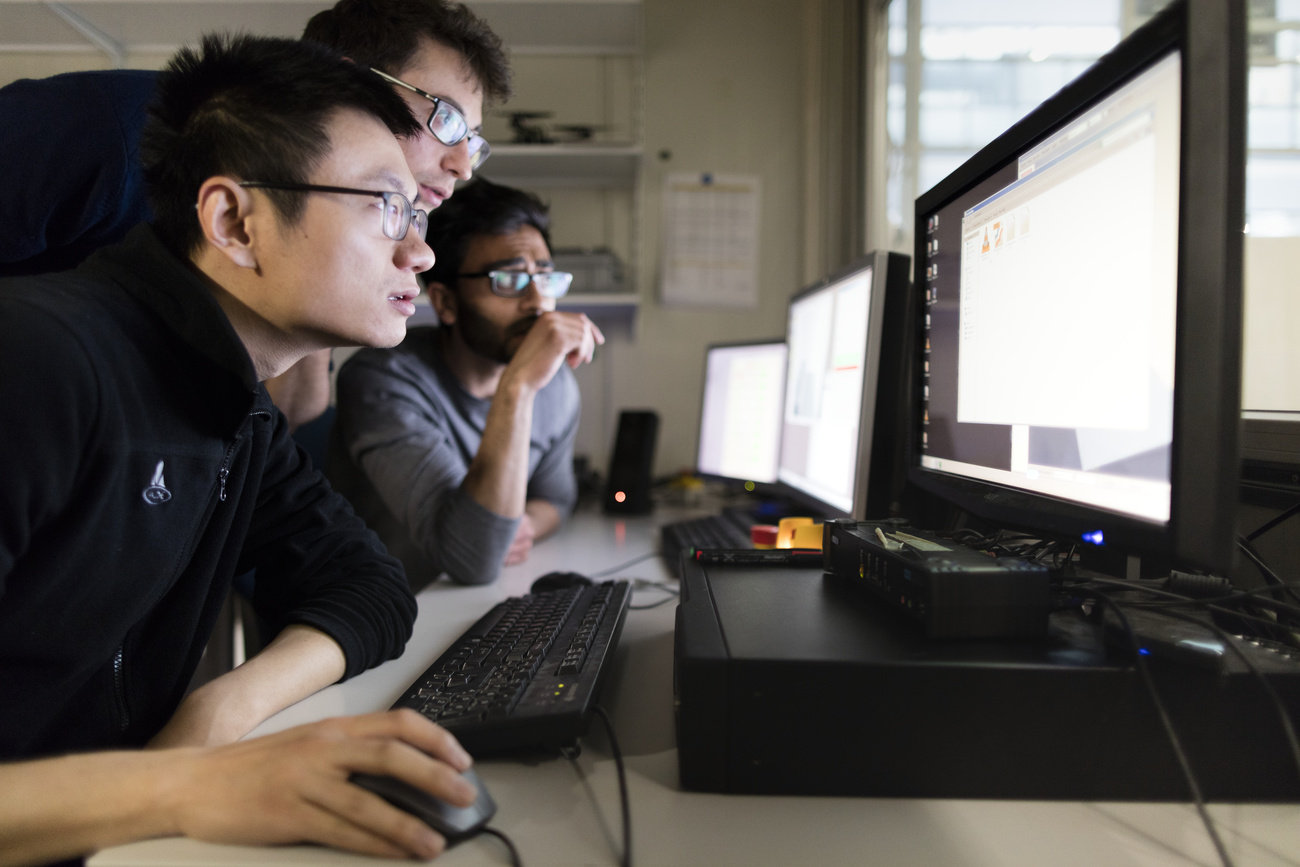
How easy is it for foreign students to study in Swiss universities?
Swiss universities continue to attract high numbers of foreign students - even during these coronavirus pandemic times.
Statistics show that numbers at Switzerland’s ten universities and two prestigious institutes of technology actually rose by 4% in 2020 compared with 2019 “despite the crisis due to the Covid 19 pandemic and its impact on global mobility,” according to figures published in January 2022External link by the Federal Statistical Office. “For 2021, initial estimates show trends similar to those of 2020,” it said.
In 2020, higher education institutions were mainly impacted by a slight decrease in the number of non-European entrants, “but in many cases this was offset by an increase in the number of entrants from neighbouring countries,” the statistical office said.

More
Switzerland still popular with overseas students despite Covid
Overall, foreign students currently account for 31.4% of students at Swiss universities – compared with 19% in 1990/1.
“Generally, master rather than bachelor degrees are more appealing to foreign nationals who come to study in Switzerland,” observes the stats office. But what foreign students really like are PhDs: they made up 57% of doctoral entrants in 2020/2021. This compares to an average of 25% across OECD countries.
Low fees
The OECD’s Education at a Glance 2019 report on Switzerland explains why Swiss doctorates are so attractive: above-average spending on research and development, which “in turn support the progress of doctoral students both during and after their study”, and low tuition fees.
For example, the 2021/22 tuition fee at the top-ranked Federal Institute of Technology Zurich (ETH Zurich) is around CHF1,500 ($1,546) for all students (Swiss and non-Swiss, the university makes no distinction) compared with an average $50,000+ annual tuition fees for foreign students for many top US universities. (Although academic fees are low, the cost of living in Switzerland is not.)

More
How does Switzerland compare when it comes to university tuition fees?
The fact that Switzerland doctoral students are employed by the universities and earn a wage, which reduces their financial burden, is another factor, the OECD says.
Foreign students’ study subjects of choice? Natural sciences and engineering.
Admissions – strict
“Storming the ivory tower requires patience, confidence and a little help from someone who has already done it,” according to Arasan MJ, one of our Indian student bloggers, who studied for a masters in finance at the Lucerne University of Applied Sciences and Arts.
In his case, speaking to someone in charge of the course before sending in an application was very useful as it helped gauge his admission chances.
Swiss admission requirements are relatively straightforward, but there can be a lot of extra documents, such as a course transcript and personal essay, to submit as well.
Entry in corona times
One accepted, those applying from outside of most of Europe also need to apply for a visa and then, once in Switzerland, a residence permit from the canton of residence.
During the coronavirus pandemic, foreign students from EU/EFTA countries have been allowed into Switzerland, subject to the normal immigration rules and quarantine rules if necessary.
Foreign students from third countries can be admitted for education and training courses that last for more than 90 days, provided they meet the normal requirementsExternal link. More information here.External link
Additionally, applicants often need to prove a good grasp of the language of instruction, be that German, French or Italian. For a growing number of graduate progammes, the language of instruction is English.

More
Getting in: University admissions in Switzerland, US and UK
The experience
Once in, foreign students can generally expect broad support for settling into their university of choice, as well as for academic and future work issues, our reporting over the last years and our bloggers suggest. Help has been available for international students during the pandemic, with student organisations such as the Erasmus Student Network Switzerland stepping in with admin and settling-in support where there are gaps.

More
How great is the student experience at a Swiss university?
According to Gaurav Singh, another one of our Indian student bloggers, academic life in Switzerland can be quite different to life back home, as he reported in a post before the pandemic. He appreciated the emphasis on the practical – rather than the theoretical – in his masters course at the University of Neuchâtel, which was designed to prepare him for the job market.
But he was surprised at students calling their professors by their first name. “Several times my professors had drinks with us in apéros organised by university. It was so different from India, where you have to say either refer to your lecturer as “Sir” or “Professor” to your teacher. Socialising with them is unthinkable,” he observed.
What happens after graduation?
After graduation, almost 40% of foreign graduates leave the country, according one-off data released by the statistical office in 2017. Most of them went on to work in a neighbouring country.

More
Non-EU graduates struggle with Swiss job access
It is generally easier for European graduates than those from elsewhere to find jobs in Switzerland. “Foreign graduates – especially those from outside the European Union – need to get used to rejection letters,” as Fungai Mettler, originally from Zimbabwe, wrote in a pre-pandemic opinion piece for swissinfo.ch. Although she did find that networking, blind applying for jobs and going the extra mile for these applications were key to her eventual success in finding a position.

More
You have your Swiss degree – now what?
A recent study by the National Centre of Competence in Research found the so-called priority rule, which institutionalises a preference to Swiss, EU and EFTA (European Free Trade Association) candidates, and the free movement of people accord with the EU were the reason for the upper hand of European graduates in the Swiss job market.
Overall, those with degrees in STEM – science, technology, engineering and maths – were more likely to get a job, the study found.

More
ETH Zurich remains continental Europe’s best university

In compliance with the JTI standards
More: SWI swissinfo.ch certified by the Journalism Trust Initiative








